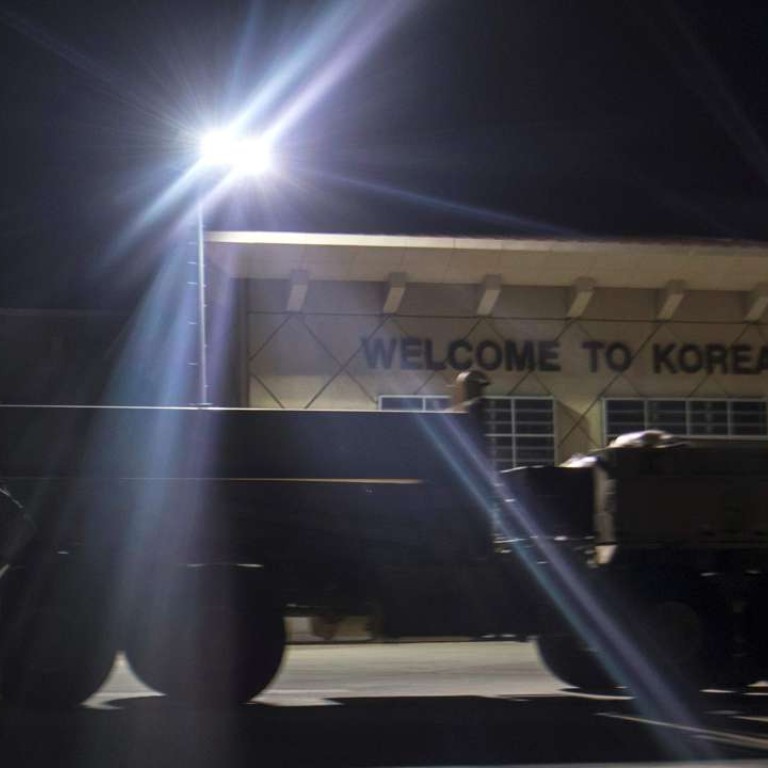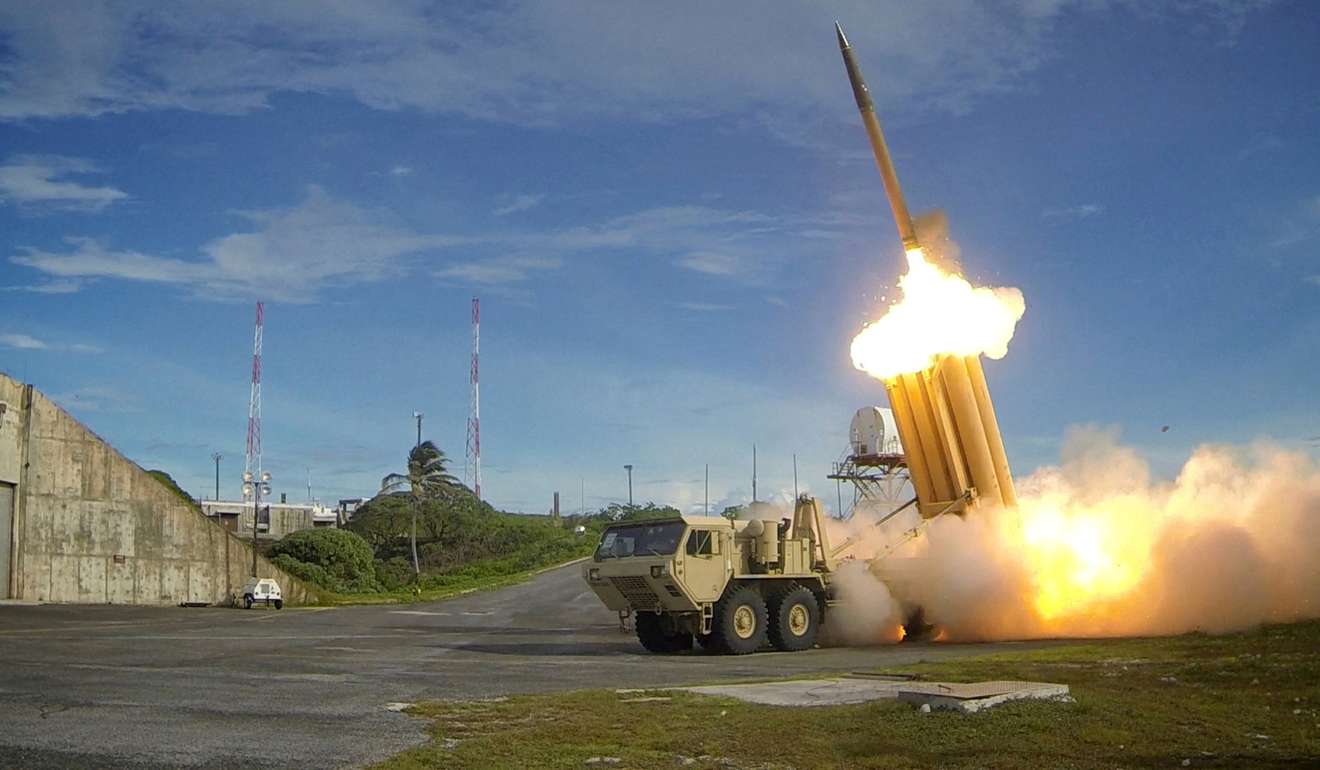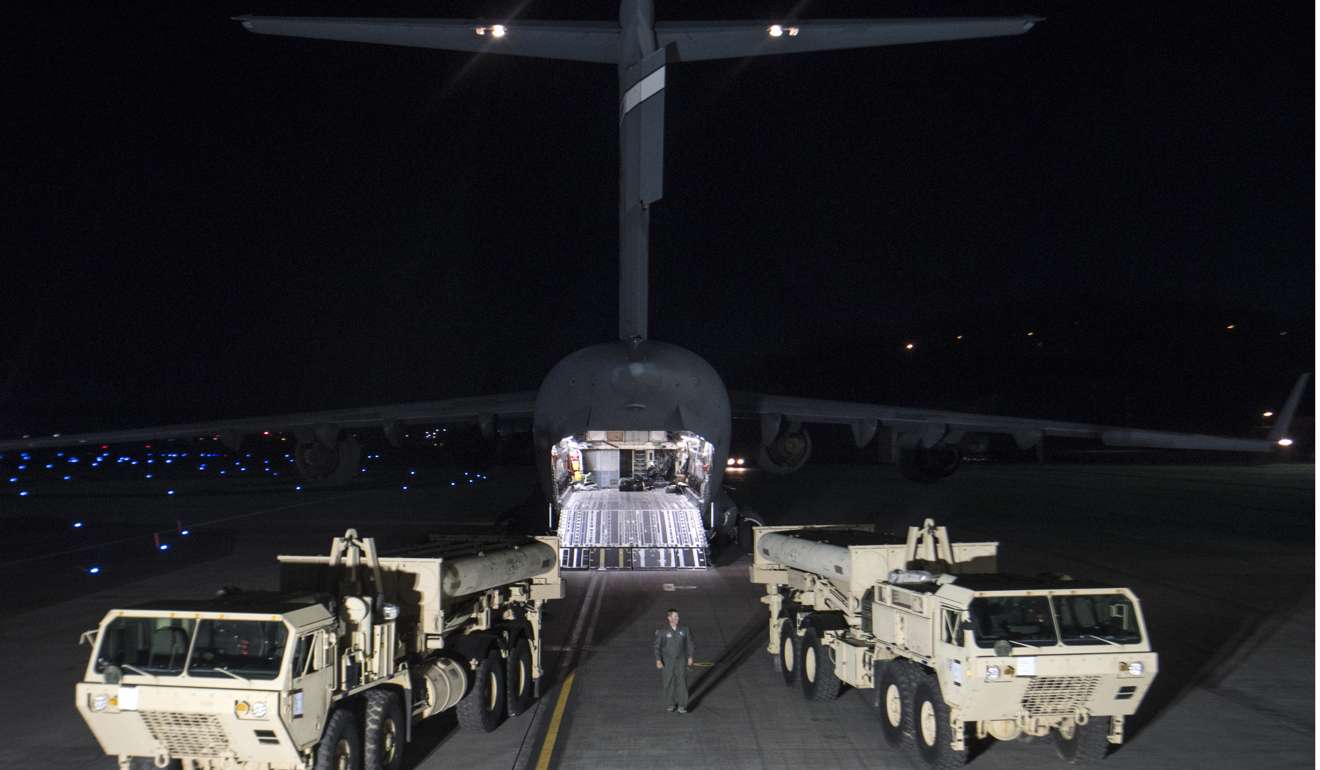
China vows ‘resolute’ measures as US deploys first parts of THAAD missile system to South Korea
The plans to deploy the missile system by the end of this year have angered not only North Korea, but also China and Russia, which see the system’s powerful radars as a security threat
China said Tuesday it would “resolutely” defend its security interests as the US began deploying the THAAD missile-defence system in South Korea that Beijing fears will undermine its own military capabilities.
“We are firmly opposed to the deployment of THAAD in the Republic of Korea by the US and the ROK,” foreign ministry spokesman Geng Shuang told reporters at a regular press briefing in Beijing.
“China will resolutely take necessary measures to defend our own security interests. All consequences entailed from this will be borne by the US and the ROK.”
South Korea and the United States agreed last year to install the Terminal High Altitude Area Defence (THAAD) system, which China has repeatedly denounced as a threat to its security.
Deployment of the THAAD system “contributes to a layered missile defence system and enhances the US-ROK Alliance’s defence against North Korean missile threats,” the US Pacific Command said in a statement.

“North Korea’s accelerating programme of nuclear weapons tests and ballistic missile launches constitute a threat to international peace and security, and are in violation of multiple United Nations Security Council resolutions.”
Some South Korean liberal presidential candidates have said that the security benefits of having THAAD would be curtailed by worsened relations with neighbours China and Russia.
South Korean news agency Yonhap reported Tuesday that Chinese authorities had shut down 39 of Lotte’s retail outlets in the country, citing fire-safety concerns.
The South Korean government also raised worries about a reported ban on Chinese tour groups visiting the country.
An official from South Korea’s Defence Ministry, who didn’t want to be named, citing office rules, said that the equipment that arrived in South Korea included launchers, but didn’t confirm how many.

While South Korea’s media speculates that the THAAD deployment could be completed by as early as April, the ministry official couldn’t confirm such reports but said the plan was to have the system operational as soon as possible.
The statement from the Pacific Command, which oversees US military operations in the Asia-Pacific, pointed out that the system is “a strictly defensive capability and it poses no threat to other countries in the region.”
The system is meant to intercept and destroy short and medium-range ballistic missiles during their final phase of flight.
Associated Press, Agence France-Presse
